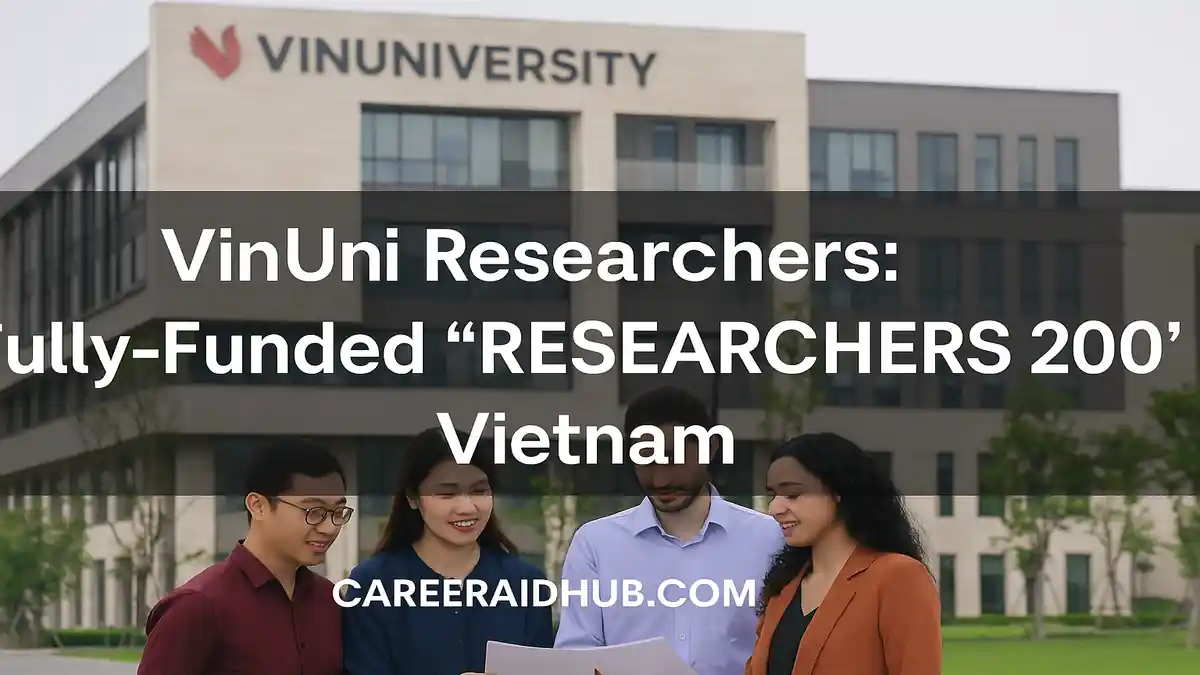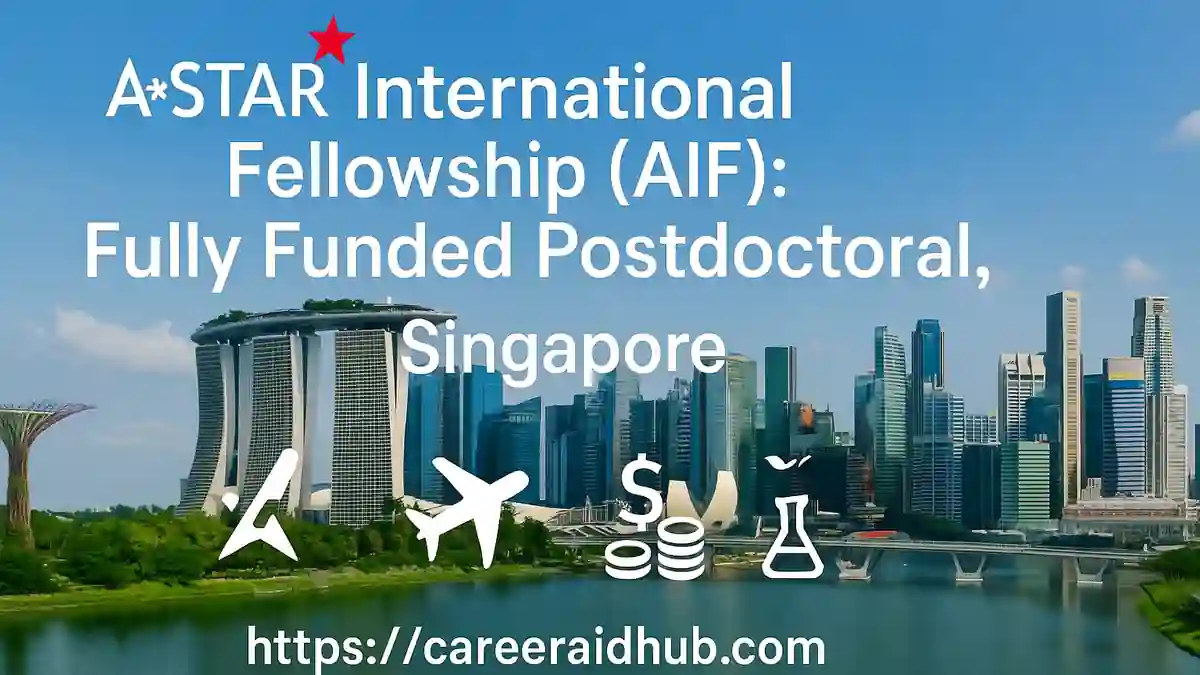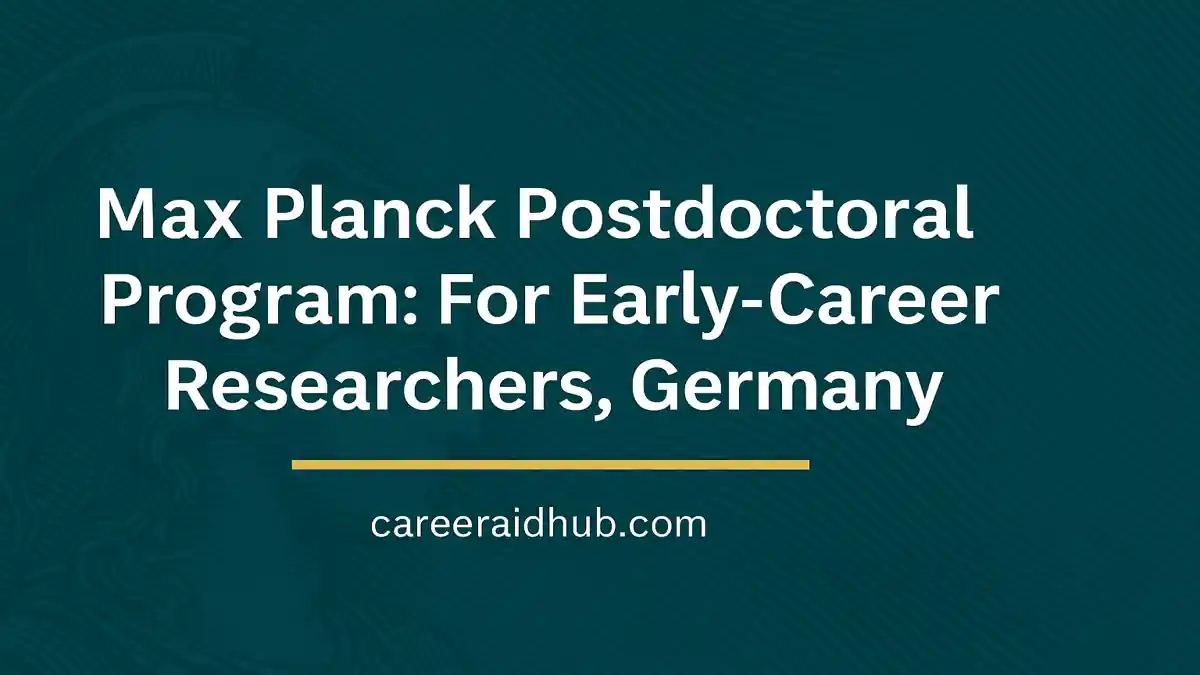150 UM Postdoctoral Research Fellowship Awards: Complete Guide for Early-Career Researchers
Introduction to the 150 UM Postdoctoral Research Fellowship Awards
The 150 UM Postdoctoral Research Fellowship Awards at Universiti Malaya (UM) are a major opportunity for outstanding early-career researchers who want to build a strong international research profile. The scheme offers 150 postdoctoral positions with an annual salary of RM96,000 and medical coverage, along with access to a vibrant research ecosystem in Kuala Lumpur, Malaysia.
For PhD graduates, this programme provides a realistic pathway to gain high-quality postdoctoral experience in a globally ranked university without the very high living costs associated with some Western destinations. The call is framed for “exceptional and visionary postdoctoral researchers ready to make an impact,” and this article explains what that means in practice.
In the sections below, you will find an overview of the scheme, key benefits, typical eligibility expectations, funding and duration, a step-by-step application guide, and expert tips to strengthen your profile before applying.
Why the 150 UM Postdoctoral Research Fellowship Awards Matter
Universiti Malaya is Malaysia’s leading university and is ranked among the top 60 universities globally and top 15 in Asia in recent QS rankings. Consequently, a postdoctoral appointment here adds strong international credibility to your CV.
Moreover, the 150 UM Postdoctoral Research Fellowship Awards are not
just isolated posts. They sit within the established UM Post-Doctoral Research Fellow (PDRF) scheme, which has clear expectations for research outputs, supervision, and performance.
For Indian researchers in particular:
-
-
Malaysia is geographically close and culturally familiar in many ways, which can ease relocation.
-
Living costs in Kuala Lumpur are significantly lower than in North America, Western Europe, or Australia, so the RM96K annual salary can translate into a comfortable standard of living.
-
Research at UM is strongly connected to regional and global networks, which can open doors for future positions in Europe, the UK, or other ASEAN countries.
As a result, this fellowship can serve as a strategic stepping stone between your PhD and a long-term academic or R&D career.
Eligibility: Who Should Apply?
The 150 awards are advertised in a concise announcement, so detailed eligibility criteria are not fully listed on the campaign page itself. However, they are aligned with the wider UM PDRF framework, which provides a clear picture of what the university expects from postdoctoral candidates.
Academic profile
Based
on the general UM Post-Doctoral Research Fellow (PDRF) requirements:
-
-
You should normally hold a PhD awarded within the last five years.
-
You must demonstrate strong English proficiency, especially if your PhD thesis was not written in English (for example, TOEFL ≥ 600 or IELTS ≥ 6.5 has been used as a benchmark in earlier calls).
-
You should have an excellent publication record, typically at least two Q1 or Q2 journal papers where you are the first author or main author.
In addition, the PDRF application form emphasises a clear research plan with defined milestones and deliverables, including a target of two Q1/Q2 publications during the fellowship period.
Research fit and supervisor requirements
Crucially, UM expects each postdoctoral fellow to be anchored to an active research grant and a committed supervisor:
-
-
You must identify a suitable Principal Investigator (PI) / supervisor at UM whose research area matches your expertise.
-
For many PDRF posts, the supervisor must hold an eligible external research grant, with a minimum remaining balance (for example, RM100,000 or RM50,000 depending on field; FRGS grants are typically excluded).
style="text-align: justify;">Therefore, before you start filling the form, you should already have:
Ideal applicants from India and the Global South
Indian and other Global South applicants are particularly competitive when they:
-
-
Have a strong PhD from a recognised university with clear evidence of independent work.
-
Possess experience in interdisciplinary or applied projects, especially related to sustainability, health, digital technologies, or social transformation—areas that match UM’s priority research clusters.
-
Can show previous collaboration or conference participation in Southeast Asia, which signals readiness to integrate quickly into the UM research environment.
Funding, Benefits, and Research Environment at Universiti Malaya
According to the official announcement, each of the 150 UM Postdoctoral Research Fellowship Awards offers:
-
-
Annual salary of RM96,000, paid monthly.
-
Medical coverage under UM’s staff healthcare arrangements.
-
The opportunity to collaborate with leading scholars on global research challenges.
-
Membership of a diverse, world-class research community in Malaysia’s flagship university.
Under the standard PDRF framework, appointments are full-time, contract positions. Earlier calls specify that:
-
-
Local candidates may be appointed for 6–12 months initially, while international candidates usually start with at least 12 months to satisfy visa conditions.
-
Extensions can be considered based on performance and Key Performance Indicators (KPIs), particularly research publications and project milestones.
As a result, applicants should treat this as an intensive, output-oriented period. You are expected to publish, contribute to grant delivery, mentor junior researchers or students when needed, and help build the host group’s international visibility.
Step-by-Step: How to Apply for the UM Postdoctoral Research Fellowship
Although the 150-awards campaign uses a short URL and QR code, the underlying process follows the standard PDRF application route.
1. Identify a host faculty and supervisor
Firstly, map your research interests to UM’s faculties, institutes, or research centres. Review potential supervisors’ recent publications and funded projects via UM’s research portals and departmental pages.
Once you have a shortlist, write to potential supervisors with:
-
-
A concise CV highlighting key publications and methods.
-
A one- to two-page research concept note aligned with their funding.
-
A clear statement on why UM is your preferred destination.
2. Confirm funding route and supervisor support
Secondly, discuss with the supervisor whether your appointment will be:
-
-
Funded by central UM funds, or
-
Funded by grants or others, using the specific PDRF application form for grant-funded positions.
The supervisor must agree to host you and complete their section of the application, including declarations and confirmation of grant details.
3. Prepare documents and application form
Thirdly, complete the relevant PDRF application form and checklist. Standard requirements include:
-
-
Completed and signed application form and checklist.
-
Recent passport-size photograph with a blue background.
-
Curriculum vitae with full publication list and key achievements.
-
Certified copies of academic degrees (PhD, Master’s, Bachelor’s) and English language test results, where applicable.
-
A clear research proposal with objectives, methods, expected outputs, and a lay summary.
-
A Gantt chart showing milestones and timelines.
In addition, you must arrange two referee reports. The official announcement links directly to a referee report template, and UM expects referees to send their reports within about two weeks of your application.
4. Submit both soft copy and hard copy
Fourthly, send:
-
-
Soft copy (PDF) of the complete application package to the designated email address ([email protected]).
-
Two hard copies (one original, one photocopy) of the full application set to the office indicated on the form or call.
Incomplete or late applications are not processed, so you should plan backwards from the expected deadline and factor in courier time.
5. Monitor the official website and email
Finally, the 150-award campaign does not list a fixed closing date on the landing page. Therefore, applicants must monitor:
-
-
The UMResearch Post-Doctoral Fellowship page (umresearch.um.edu.my/join-us/post-doctoral-fellowship/).
-
Any deadline information provided through the shortlink application portal.
-
Email communication from the postdoc recruitment team.
Do not resign from your current role or make irreversible travel plans until you receive a formal offer and have secured the necessary visa and work authorisations.
Practical Tips, Common Mistakes, and Expert Advice
From an expert recruiter’s perspective, several patterns recur in strong and weak applications.
Firstly, successful candidates usually tailor their CV and proposal specifically to UM and to the chosen supervisor. They highlight how their skills will accelerate the existing grant, rather than proposing a completely unrelated topic.
Secondly, strong applicants document impact—for example, by emphasising highly cited papers, policy reports, industry collaborations, or software and datasets. That kind of evidence reassures the selection committee that you can deliver two or more Q1/Q2 publications in the fellowship period.
Common mistakes include:
-
-
Sending generic emails to multiple supervisors without any sign of having read their work.
-
Underestimating the importance of English writing quality in the research proposal.
-
Submitting incomplete documentation (uncertified certificates, missing referee reports, or no Gantt chart).
For Indian candidates, an additional strategic tip is to link your proposed work to India–Malaysia or ASEAN collaboration themes, such as green energy, health technologies, digital education, or climate resilience. Such topics align with both countries’ policy priorities and can strengthen later applications for faculty positions or joint grants.
Conclusion: Is the UM Postdoctoral Research Fellowship Right for You?
The 150 UM Postdoctoral Research Fellowship Awards represent a rare, large-scale call that can transform the careers of early-stage researchers, especially from India and other emerging research economies. With competitive salary, medical coverage, and a structured PDRF framework, the scheme combines material support with clear expectations for high-quality publications and impact.
If you hold a recent PhD, have a strong Q1/Q2 publication record, and are ready to commit intensively to research for at least one to two years, this programme deserves serious consideration. However, it demands careful preparation: identifying the right supervisor, aligning with active grants, and submitting a complete, polished application.
You should now review the official UMResearch Post-Doctoral Fellowship page and download the latest forms before planning your timeline. Start contacting potential supervisors early, and refine your research proposal to demonstrate both excellence and feasibility. Finally, consider bookmarking this guide or sharing it with colleagues who may also benefit from these 150 UM Postdoctoral Research Fellowship Awards.
Summary Table
| Feature |
Details |
| Program |
Universiti Malaya Post-Doctoral Research Fellowship Scheme – 150 UM Postdoctoral Research Fellowship Awards |
| Host |
Malaysia |
| Funded By |
Universiti Malaya (central funds and eligible external research grants) |
| Duration |
Typically 6–12 months initially (local) and at least 12 months (international), with possible extension subject to performance |
| Study Mode |
Full-time, on-site postdoctoral research |
| Eligibility |
Recent PhD (usually ≤5 years), strong publication record, English proficiency, and confirmed UM supervisor with suitable research grant |
| Financialt |
Approx. RM 96,000 annual salary plus medical coverage; research resources via host grant and institution |
| Fields |
All disciplines aligned with UM’s research clusters (science, technology, health, social sciences, arts, and humanities) |
| Deadline |
Not explicitly stated on the 150-award announcement; applicants should monitor the UMResearch PDRF web page and application link for current deadlines |
| Official Link |
Post-Doctoral Fellowship Page |
Frequently Asked Questions (FAQs)
Who can apply for the 150 UM Postdoctoral Research Fellowship Awards? Early-career researchers with a PhD typically obtained within the last five years and a strong Q1/Q2 publication record can apply. Candidates must also secure a UM supervisor whose research area matches their expertise.
Are Indian researchers eligible for these fellowships? Yes. The scheme is open to qualified international applicants, including Indian researchers, provided they meet UM’s academic, publication, and English language requirements and can obtain the necessary Malaysian visa and work permits.
What is the salary for UM postdoctoral fellows? The 150-awards campaign specifies an annual salary of RM96,000 with medical coverage, paid under a full-time contract appointment at Universiti Malaya.
How long does the fellowship last? Under the general PDRF scheme, local candidates may be appointed for 6–12 months initially, while international candidates usually start with at least 12 months. Extensions depend on performance and the recommendation of the supervisor and research centre.
Do I need a supervisor before submitting my application? Yes. You must identify and obtain support from a UM supervisor or Principal Investigator who has a suitable research grant and is willing to host you. Their endorsement and grant details are integral parts of the application.
What documents are required for the application? Applicants need a completed PDRF form and checklist, certified academic certificates, a detailed CV, research proposal, Gantt chart, passport-size photo, and at least two referee reports, in addition to supervisor and grant information.
Is there a fixed deadline for the 150 awards? The public announcement for the 150 UM Postdoctoral Research Fellowship Awards does not list a specific closing date. You should therefore monitor the official PDRF web page and the linked application portal for current deadlines and updates.
What are the main performance expectations during the fellowship? Postdoctoral fellows are expected to contribute actively to the host grant, publish high-quality papers (often with a target of two Q1/Q2 publications during the fellowship) and help build the visibility and impact of the research group.
Premium Mentorship for a Stronger Application
- Premium Mentorship: personalised 1:1 guidance for this and similar opportunities
- In-depth review of your CV, academic profile, and key statements
- Aligned with international selection criteria so your profile matches what panels expect
- Stronger, more compelling narrative for highly competitive calls
- Step-by-step support from opportunity mapping to final submission (fee-based)
Subscribe Premium Mentorship










